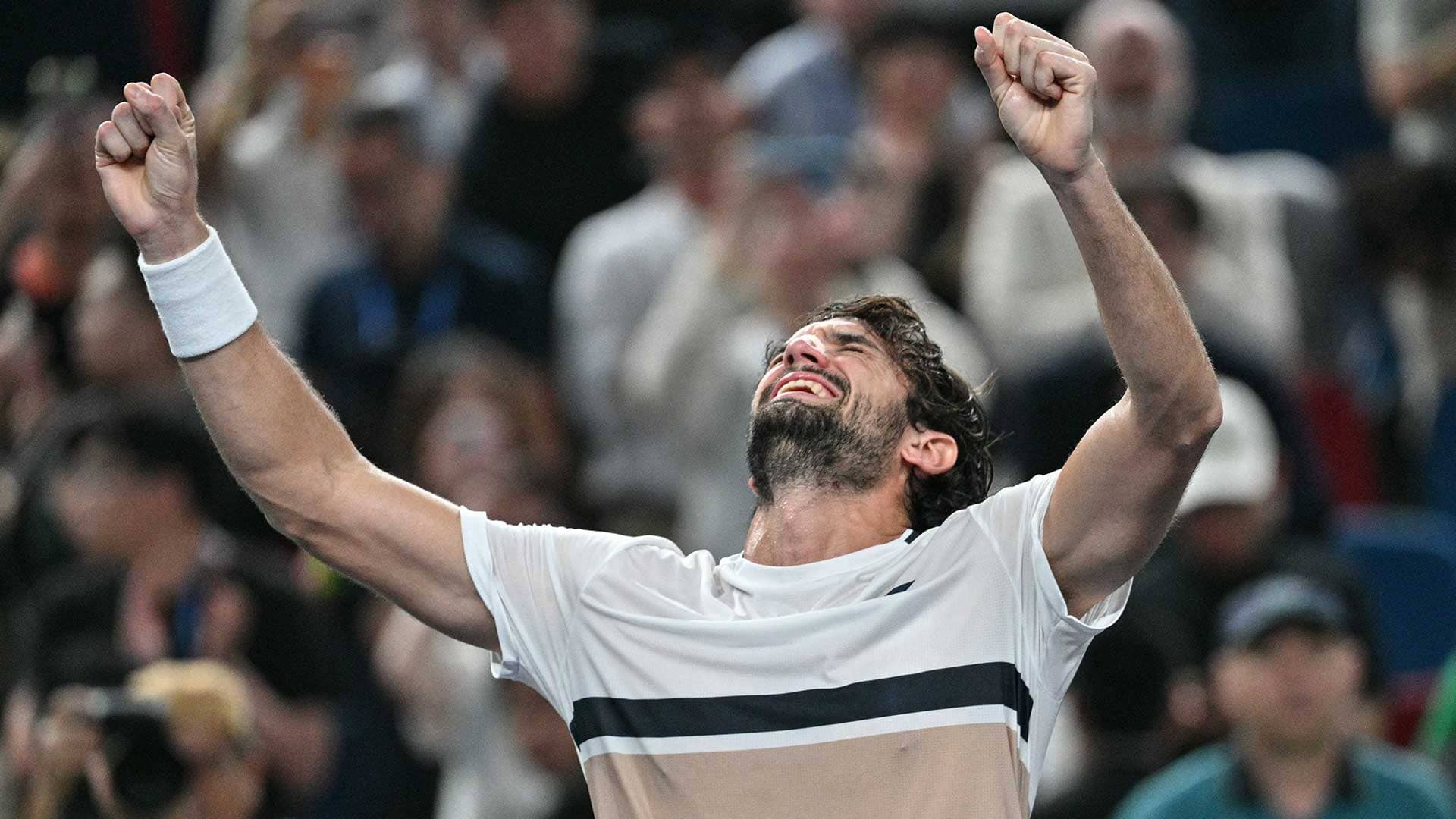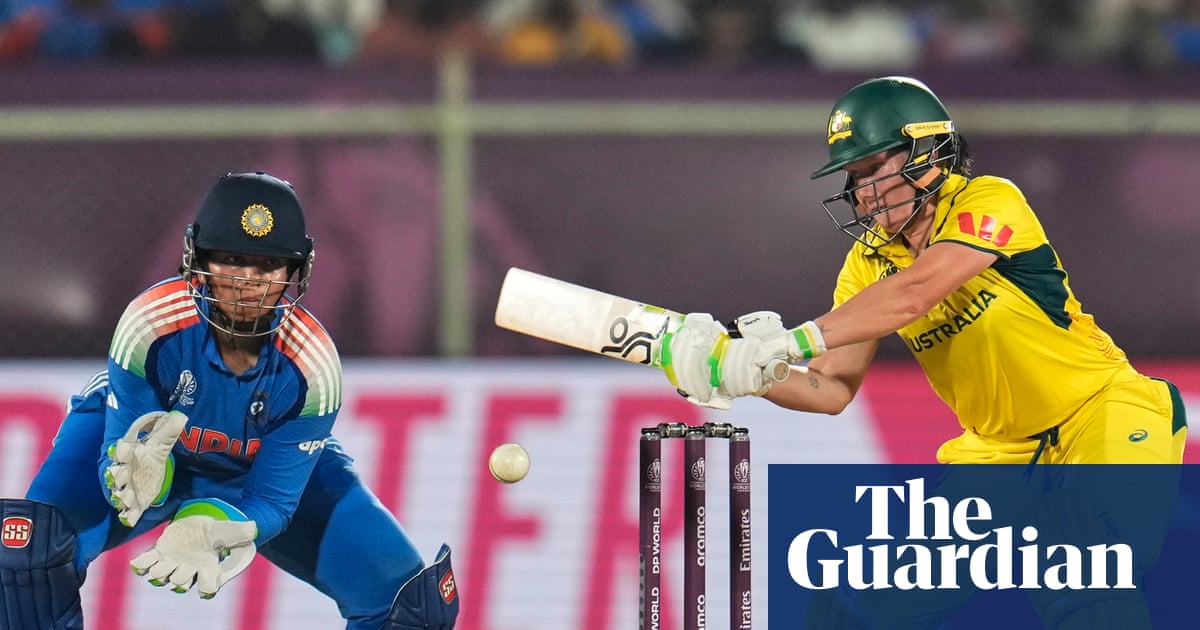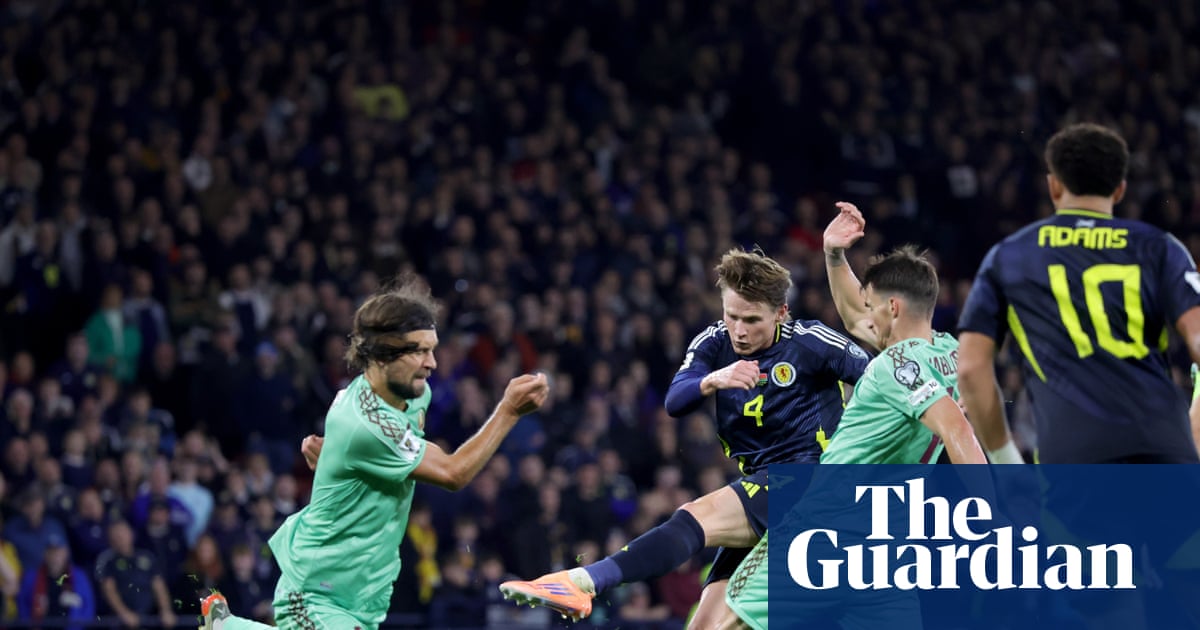Cousins, tears and a Cinderella story for the ages at the Shanghai Masters

When Valentin Vacherot arrived at the Shanghai Masters two weeks ago, he was ranked 204th in the world and did not even have a place in the tournament.On Sunday, the 26-year-old qualifier did not just make history as the first Monegasque player to win an ATP title, as well as the lowest-ranked Masters champion of all time. The winner’s cheque of £824,000 was more than double his previous career earnings of £380,000.But a life-changing victory for Vacherot came against his cousin, the Frenchman Arthur Rinderknech, who he shared tears with as they congratulated each other during an emotional trophy ceremony.“There has to be one loser, but I think there are two winners today,” Vacherot said. “One family that won, and I think for the sport of tennis, the story is unreal.” So much for the end of the tennis season running short of drama and plotlines.Vacherot travelled to China requiring some good fortune to even make the qualifying draw. As the ninth alternate, he needed a wave of withdrawals, but he squeezed through.In the second round of qualifying, Vacherot stood two points away from defeat as he battled the Canadian Liam Draxl in a second-set tiebreak. Vacherot survived, in what was the first of six comebacks to win his maiden tour title.That run saw Vacherot knock out five seeds in a row: Alexander Bublik, Tomas Machac, Tallon Griekspoor, Holger Rune and, in the semi-finals, an out-of-sorts Novak Djokovic.When Vacherot stunned Rune in the quarter-finals, he collapsed onto the court as it confirmed his place in the top 100, his stated goal at the start of the year.But what followed was beyond Vacherot’s wildest dreams. He did not even celebrate when he defeated Djokovic, overawed by sharing the court with one of the greatest of all time and understandably muted by the sight of the 38-year-old struggling physically.It set up a fairytale final against his cousin Rinderknech, who had embarked on his own sensational run to the final – just five months on from questioning his future in the sport.As Rinderknech knocked out Felix Auger-Aliassime and Daniil Medvedev to reach his first Masters final at the age of 30, he did so with Vacherot supporting him from his coaching box. They had celebrated their victories by pointing towards the other cousin.When the Frenchman felt drained and was behind during his semi-final against Medvedev, he forced himself to carry on in an attempt to tire out his opponent and help Vacherot’s chances in the final.But Rinderknech pulled off his own comeback to join Vacherot in the final, setting up a unique showpiece that had set the family WhatsApp group “buzzing” back home.Vacherot and Rinderknech’s journeys are intertwined. They overlapped while at college at Texas A&M University; they were teammates for two and a half years between 2016 and 2018, and dreamed of reaching the top.But the grind of the tour forced them to reconsider their targets at the start of the year. Five months ago, Rinderknech was “below the floor” as he struggled for results. He was picked up by compatriot and fellow player Lucas Pouille, who joined his team as a temporary coach while sidelined by injury.“I was thinking about stopping tennis at some point because I wasn’t seeing the point any more,” Rinderknech said. “You [Pouille] believed in me, you gave me a chance, you trusted in me.”Out of nowhere came a first-round win over Alexander Zverev at Wimbledon. Rinderknech also beat world No 3 Zverev in Shanghai and, after knocking out Auger-Aliassime and Medvedev in his run to the final, has eight wins against top 20 opponents since June, more than he had managed in his entire career to that point.But of the two cousins, Vacherot’s run to the final was the biggest surprise. Vacherot had been on the brink of breaking into the top 100 last summer, before he was sidelined for most of the second half of last season due to a right shoulder injury,Until Shanghai, Vacherot had spent the 2025 season entering Challenger events – other than his home tournament in Monaco, where he received a wildcard. In the principality, Vacherot’s first-round victory over Jan Lennard-Struff was his first – and until Shanghai, his only – main-draw win on the ATP Tour.He admitted he had started to reassess his goals. He thanked his girlfriend Emily Snyder, who spent the deciding set desperately crossing eight of her fingers, for continuing to believe in him.“I started losing faith this year. I was telling her, our goal is to finish the year top 100. I started updating it this past few months. She kept telling me, no, no, no, no, it’s gonna happen, it’s gonna happen.”And then, spectacularly, it did. It happened for both Vacherot and Rinderknech, who practised together before the final. After growing up together on and off the tennis court, they had nothing to hide from each other.The occasion could have overwhelmed both men, with Roger Federer sitting courtside in Shanghai and a loved one on the other side of the net. “I tried to put it on the side that it’s my cousin,” Vacherot said. “It was really tough.”Rinderknech settled first. He capitalised on a loose game from Vacherot to take the only break in the first set. The Monegasque, for a while, became frustrated with the quality of Rinderknech’s play, with 12 winners to just three unforced errors in the first set.Vacherot, though, only needed a moment to turn it around. He flashed a backhand winner down the line to take the decisive break in the second set, the shot that convinced Vacherot to commit to his aggressive approach. He surged, winning five games in a row.By then, the exertions of the week caught up with Rinderknech, who was also hit by delayed cramps during the trophy ceremony that required a chair being brought out onto the court. The brutal temperatures and humidity in Shanghai had taken its toll on the players this week and although the final was slightly cooler, Rinderknech also required treatment on a back injury midway through the decider.It only delayed Vacherot as he closed out victory with a forehand winner, falling into Rinderknech’s arms at the net. The post-match scenes were as extraordinary and unique as the final that had preceded it. “Grandpa and Grandma would be proud,” Vacherot wrote on the courtside cameras, before sitting next to Rinderknech as they waited for the trophy ceremony to begin, as if children again.And there were tears as the cousins turned to address each other in French. “Valentin, my cousin, my love. Two cousins are stronger than one,” Rinderknech managed between gulps. “You gave everything – I’m so happy for you.”There were no empty platitudes here. This was genuine emotion, in a Cinderella story for the ages.








